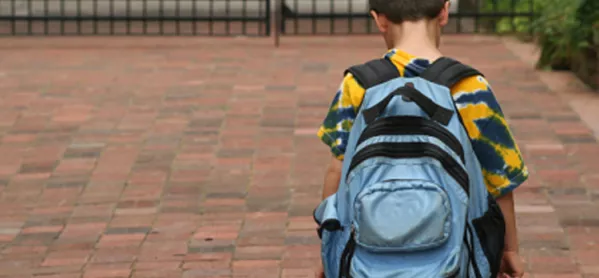One in seven children of school staff and other public sector workers will be living in poverty by the end of next month, unions are warning.
Research by the TUC found that the government’s cap on public sector pay as well as in-work benefit cuts were affecting tens of thousands of youngsters.
Around 550,000 children living with a public sector worker in the family will be classed as being in poverty by the end of the current financial year, the union organisation said.
The South West has seen the biggest increase in child poverty rates among families with a public sector worker, followed by the North West and East Midlands, the study found.
‘Needless hardship’
TUC general secretary Frances O’Grady said: “The government’s pay restrictions and in-work benefit cuts are causing needless hardship.
“Public servants shouldn’t have to worry about feeding or clothing their kids. But many are struggling to afford even the basics.
“Ministers must give public sector workers the pay rise they have earned.”
Unison’s assistant general secretary Christina McAnea commented: “Poor pay has left many public sector families desperately watching the pennies.
“A career helping and caring for others was never going to make millionaires of NHS, school and council staff, but none of them would have expected to be so hard up after years of public service - and for their children to be the ones that suffer.”
The TUC said an individual was considered to be in relative poverty if their household income was less than 60 per cent of median income.
Poverty levels
Sam Royston, who chairs the End Child Poverty coalition, said: “End Child Poverty members know that for too many families a move into work doesn’t mean a move out of poverty, with two-thirds of children living in poverty coming from a working household.
“This shocking new research confirms these concerns, revealing that more than half a million children of public sector workers are now living in poverty.
“It is no longer credible for the government to deny the impact of cuts to in-work benefits and we call on them to end the freeze on children’s benefits.”
A government spokesperson said: “We do not recognise these figures. The best route out of poverty is through employment - and since 2010 an extra three million more people are now in work and 600,000 fewer children are living in workless households.
“But we recognise that budgets are tight, which is why we have confirmed that the 1 per cent public sector pay cap will no longer apply, and we’ve doubled free childcare - worth £5,000 per child each year.”
Want to keep up with the latest education news and opinion? Follow Tes on Twitter and like Tes on Facebook




